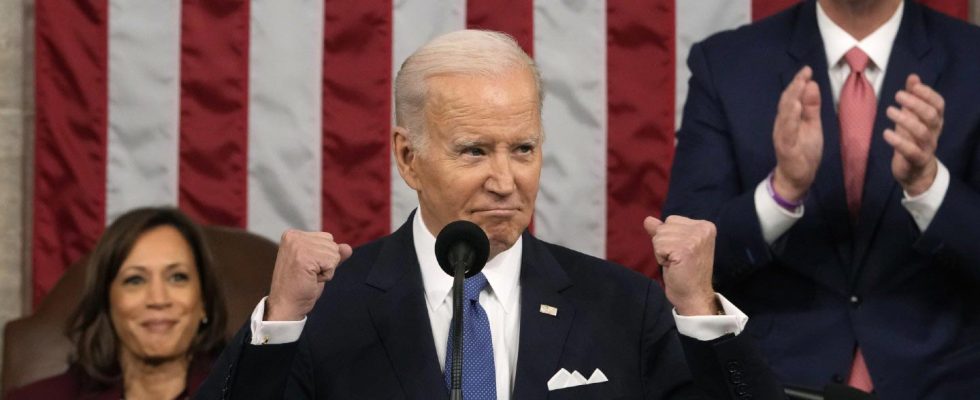We must listen to the cries of those who are suffering.
The State of the Union address, which President Joe Biden will deliver on Thursday evening, is a status report required by Article II, Section 3, Clause 1 of the Constitution. For more than a century of the American story, it was delivered in writing. As a speech, it has become more of a political performance than an exercise in honest reporting, no matter who delivers it, Republican or Democrat. Especially during an election year, the SOTU gets reported as an incumbent’s case for why he should be reelected. But the Constitution requires a “state of the union” report because it is honest about the limits of human government. If we are to do the work necessary to “form a more perfect union,” we need an honest assessment of where we really are.
To really know the state of any nation, we must listen closely to its most vulnerable people. I am a Christian preacher, and in my tradition, when the God of heaven came to dwell among people, he did not come as a powerful leader or as an honored ambassador from a foreign land. Jesus, the brown-skinned Palestinian Jew, came as a poor man born in Bethlehem, raised in the ghetto of Nazareth, which he was forced to flee as a refugee child before leading a movement of poor people to march on their capital city and proclaim a new political order centered on good news for the poor. But this is not only a Christian way of being. Throughout US history, the movements that have pushed us toward a more perfect union have been led by formerly enslaved people, disenfranchised women, workers who demands that their bosses show them dignity, and the people who suffered the most from Jim Crow’s segregation. If we care about improving the state of the union, we must listen to the cries of those who are suffering and taking action to push the nation toward a more perfect union.
One hundred and thirty-five million poor and low-wage people have no illusions about the state of the union today, but they are nevertheless organizing in historic ways, with new union drives in their workplaces and moral fusion movements in the public square. These are the people who, together with their political allies, came together to reject the extremism of Donald Trump in 2020. They elected majorities in the House and Senate who said they were committed to raising the minimum wage to at least $15 an hour. They dramatically improved the state of our union, during the midst of a global pandemic, by pushing policies that cut child poverty in half.
No one can say that we haven’t seen good and important progress in the state of our union over the past four years. But we would betray the work of the people who’ve struggled to make that possible if we did not tell the truth about the injustices that continue to plague us.
Current Issue
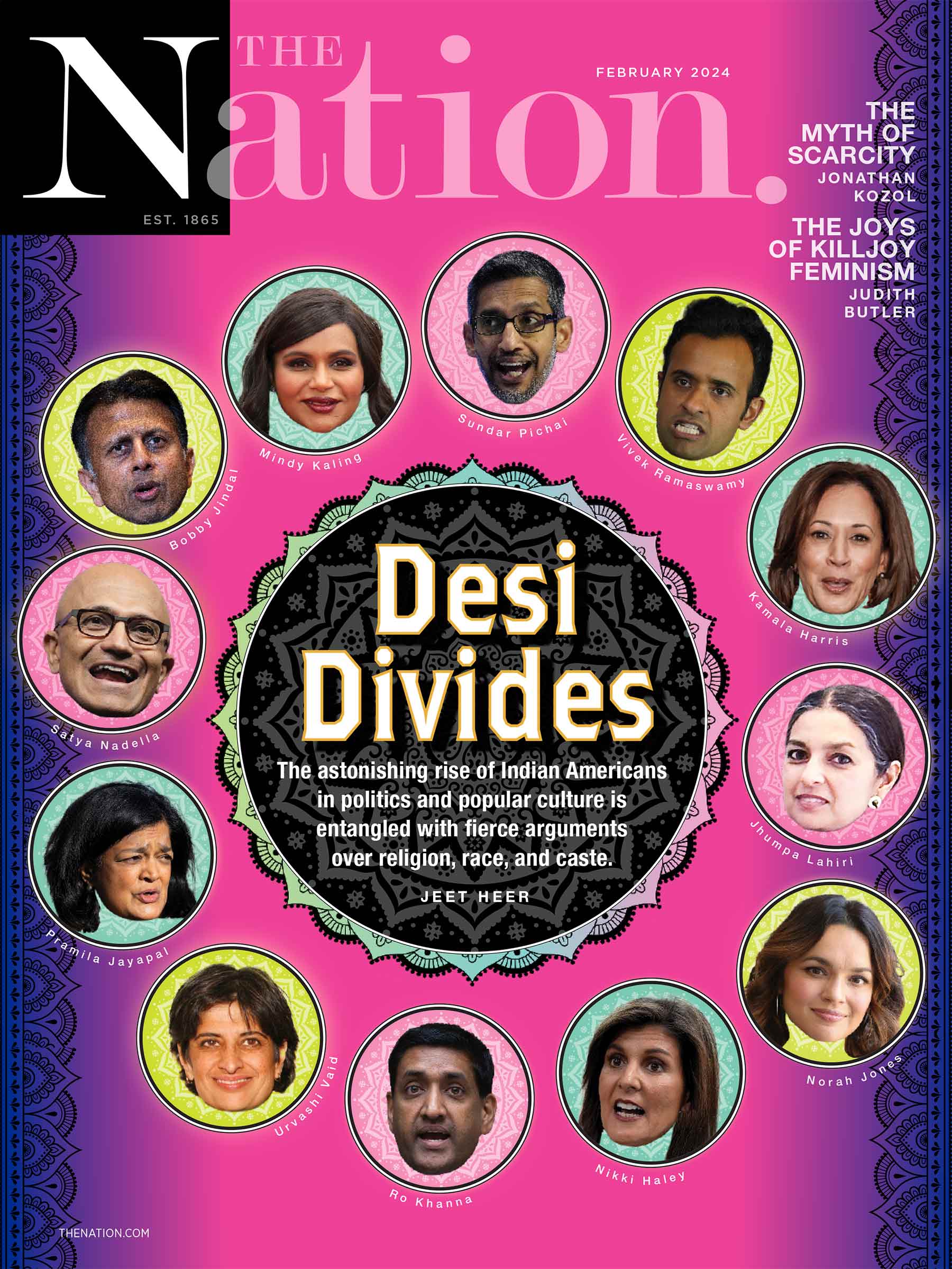
The true state of the union is not limited to one administration; it reflects the systemic reality that nearly a third of the workforce—52 million Americans—work for less than $15 an hour. Poverty wages, combined with a steep increase in cost of living, have left 135 million of our neighbors poor or low-income, even as unemployment is at a record low. This doesn’t simply mean that some of us are struggling to get by or learning to “do without” luxuries we’d prefer. Poverty is the fourth-leading cause of death—more deadly than obesity, diabetes, or firearms. Low wages are killing people, but Congress has not acted to raise the minimum wage since 2009. We face a crisis of poverty; we know what could fix it, but our political leaders have failed to act.
The true state of the union is that 80 million Americans are uninsured or underinsured. We are alone among the world’s wealthiest economies in our failure to provide universal healthcare, even after living through a pandemic that revealed how this failure to ensure a basic human right makes all of us more vulnerable. As a nation, we spend more on healthcare than any of our peers do but consistently have the worst health outcomes. We face a crisis of healthcare; we know many things that could fix it, but our political leaders have failed to act.
The true state of the union is that we have less voting rights protections today than we did when the Voting Rights Act was passed in 1965. A record voter turnout in 2020 has been met with more than 1,000 voter suppression measures introduced in statehouses across the country. Our political leadership from both sides of the aisle claims to honor civil rights veterans like John Lewis, but they have failed to pass the voting rights protections he was advocating for when he died. We face a crisis of democracy; we have bills in Congress that could address it, but our political leaders have failed to act.
The true state of the union is that we have failed to exhibit basic moral consistency on the world stage. We have not mustered the moral courage to equally condemn the shedding of innocent blood by Hamas on October 7 and the retaliatory killing of innocent women and children by Netanyahu’s regime, along with the apartheid practices and genocidal acts that preceded October 7. This moral challenge is not confined to the Middle East. It must also include Sudan, Somalia, and anywhere innocent lives are being taken. This is a moral necessity, especially for a nation that acknowledges our own history of genocide against Native Americans and enslaved Africans. We face a humanitarian crisis, we have the power to demand a cease-fire, but our political leaders have failed to fully act.
The true state of the union is that we have a Supreme Court majority that is not supremely committed to the interests of the American people but has proven itself supreme in the service of corporations that put profit over people. Courts that were designed to check the abuse of political power now serve to facilitate it, and Senator Mitch McConnell has used his power in the Senate to stack the court with Federalist Society extremists. We face a crisis of credibility, and our political leaders have failed to act.
As a preacher, I wish the politicians who put their hand on the Bible when they are sworn into office would read what’s in the Bible. “Whoever oppresses a poor man insults his Maker,” Proverbs says, “but whoever is generous to the needy honors God.” Jesus said that nations—not just individuals—will be judged according to whether they fed the hungry, clothed the naked, healed the sick or visited those in prison. “When you did it unto the least of these,” Jesus said pointedly, “you did it to me.”
If we listen to the voices of the “least of these”—those who are crying out for justice today—we must acknowledge that we are in a state of emergency. This is not to deny the importance of action to raise wages for federal workers, expand Medicaid, forgive student debt, invest in sustainable infrastructure, and add green jobs. The current administration, along with some bipartisan support in Congress, has demonstrated that government can do good for everyday people. The problem is that the scale of the investment does not equal the state of emergency—and that, when political leaders have taken decisive action, they have quickly reversed themselves. The Expanded Child Tax Credit, which included monthly payments to poor and low-income families, cut child poverty in half. But it was not renewed. The $15 minimum wage that low-wage workers have demanded for more than a decade became a commitment of the Democratic Party’s platform when the Biden/Harris ticket was nominated, and the legislation that would have lifted more than 50 million poor and low-income people at the time passed the House. But it died in the Senate because a handful of Democrats weren’t willing to stand for their own party’s platform, and they joined a unified Republicans Party to block it.
The true state of our union isn’t that we have not seen real improvements over the past four years. The tragedy is that the Biden administration’s best policies have been subverted, and its boldest goals have been watered down by people who claim to be on the same team. As Dr. King said in the midst of the Birmingham campaign to bring down Jim Crow, our greatest enemy is not the extremist who openly opposes progress but the moderate who pretends that everything will be OK if we carry on as normal. By silencing the sirens that should be blaring, they act like it is normal to send maintenance workers with fire extinguishers to a four-alarm fire.
In view of this state of things, it would be easy to feel discouraged and question whether 2020’s record turnout to “reclaim democracy” has done any good at all. But if you are, like me, committed to judging the state of the union by listening to the those who’ve suffered the most, there are other data that cannot be overlooked. Poor and low-wage voters in the US today make up a third of the electorate; they are almost 40 percent of eligible voters in every swing state. As a group, these voters have historically participated at a rate 20 percent lower than their wealthier neighbors. If they were to fully engage, they are the single largest group of swing voters in the country.
Popular
“swipe left below to view more authors”Swipe →
America’s growing inequality over the past four decades has made us increasingly vulnerable to extremist attempts to divide the nation. When people know from their everyday experience that things aren’t working, it’s easy to play on our worst fears and pit Americans against one another. But at a moment when nearly half of the country is poor or low-income, it’s also possible for everyone who’s been left out and rejected to come together as a powerful force for transformative change. Since 2018, I have been working with the Poor People’s Campaign to mobilize a moral fusion movement of people from every race, religion, and region to change the narrative about what is possible in our public life. On March 2, thousands of us gathered at 32 statehouses and in the District of Columbia to declare that our votes are demands for a Third Reconstruction. We are launching 40 weeks of action in our communities to mobilize 15 million poor and low-income voters for this November’s election. Our political representatives have failed to act, but we are taking direct action to change the balance of power and right the ship of state. No captain can save a ship on his own; to make it through this storm, we need all hands on deck.
The true state of the union is that we have never yet been all that we claim to be, but a movement is rising up to insist that we can yet become better than we have ever been. The future of the union is in our hands. It’s our job to love this nation enough that we insist it become better.
Thank you for reading The Nation!
We hope you enjoyed the story you just read. It takes a dedicated team to publish timely, deeply researched pieces like this one. For over 150 years, The Nation has stood for truth, justice, and democracy. Today, in a time of media austerity, articles like the one you just read are vital ways to speak truth to power and cover issues that are often overlooked by the mainstream media.
This month, we are calling on those who value us to support our Spring Fundraising Campaign and make the work we do possible. The Nation is not beholden to advertisers or corporate owners—we answer only to you, our readers.
Can you help us reach our $20,000 goal this month? Donate today to ensure we can continue to publish journalism on the most important issues of the day, from climate change and abortion access to the Supreme Court and the peace movement. The Nation can help you make sense of this moment, and much more.
Thank you for being a supporter of independent journalism.

More from The Nation
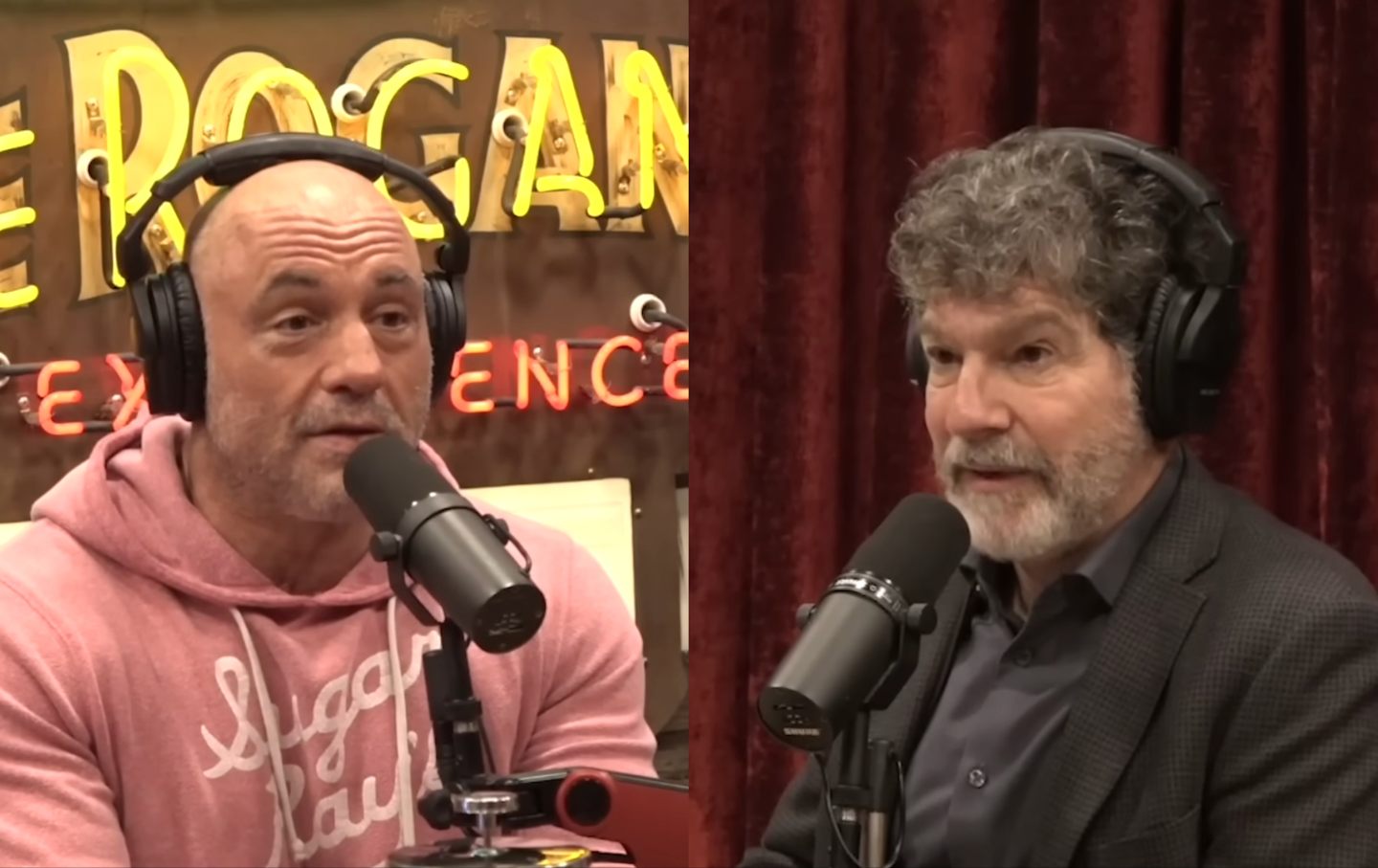
Joe Rogan, RFK Jr., and others are pushing long-discredited conspiracy junk about HIV and AIDS. Here’s how we should deal with them.
Gregg Gonsalves
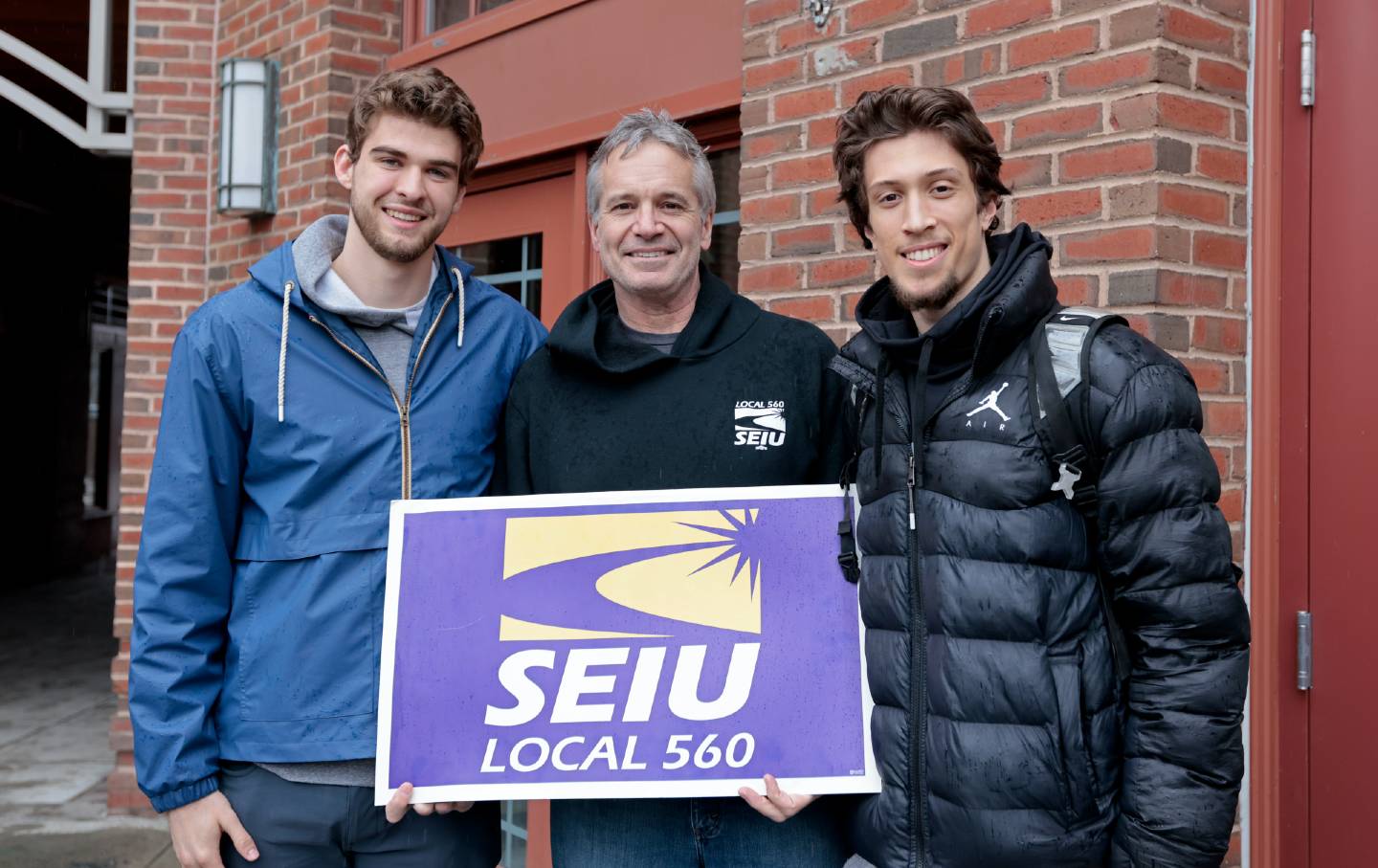
The Dartmouth basketball team just voted to join SEIU Local 560, a big step toward ending the exploitation of college athletes.
Dave Zirin

Laura Flanders talks with Gabor Maté and V, formerly Eve Ensler, about loneliness and facing difficult truths.
Q&A
/
Laura Flanders
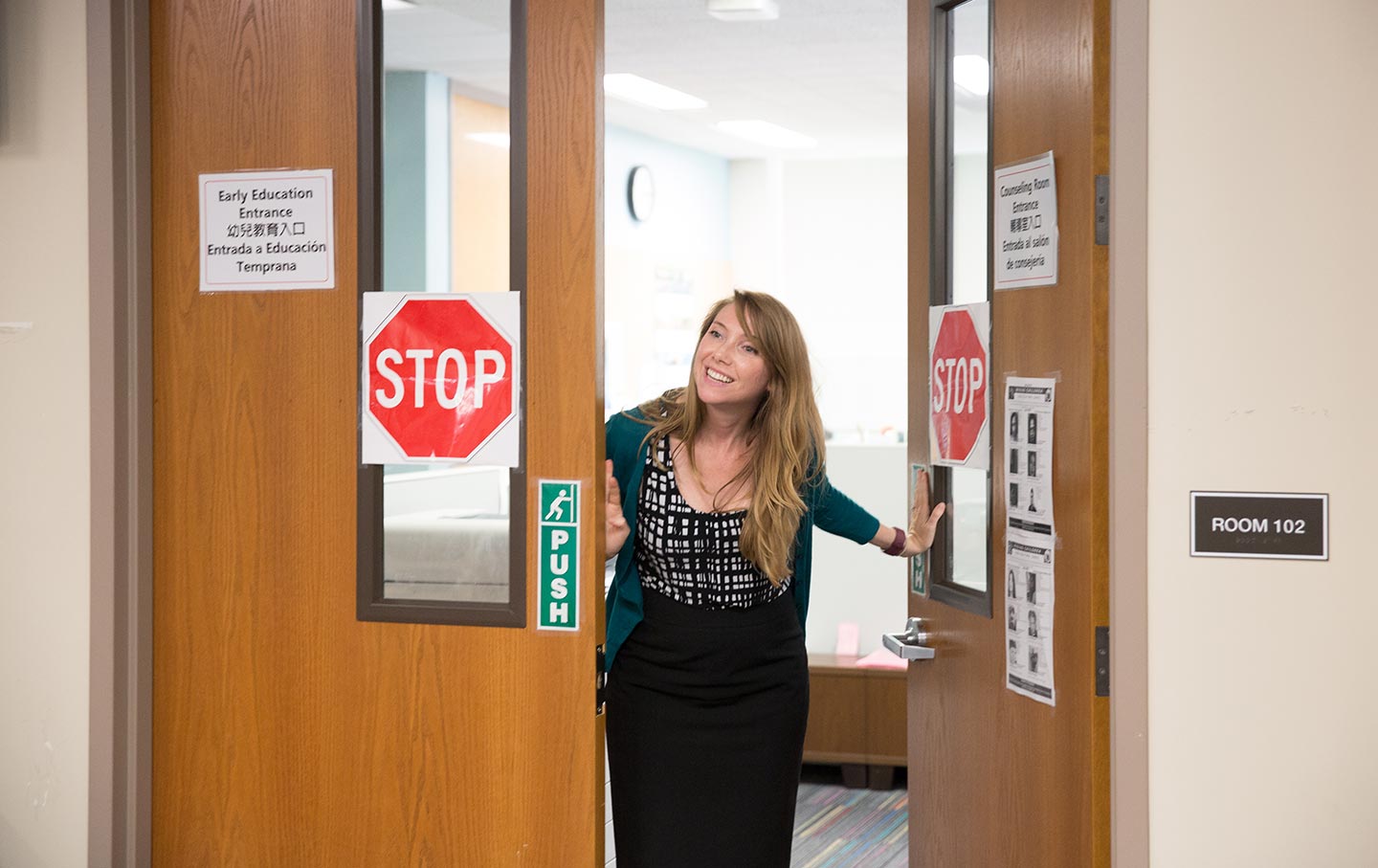
The city’s public-school enrollment has shrunk. Here’s how one district employee is fighting privatization, bad PR, segregation, and population loss to stem the tide.
Gail Cornwall
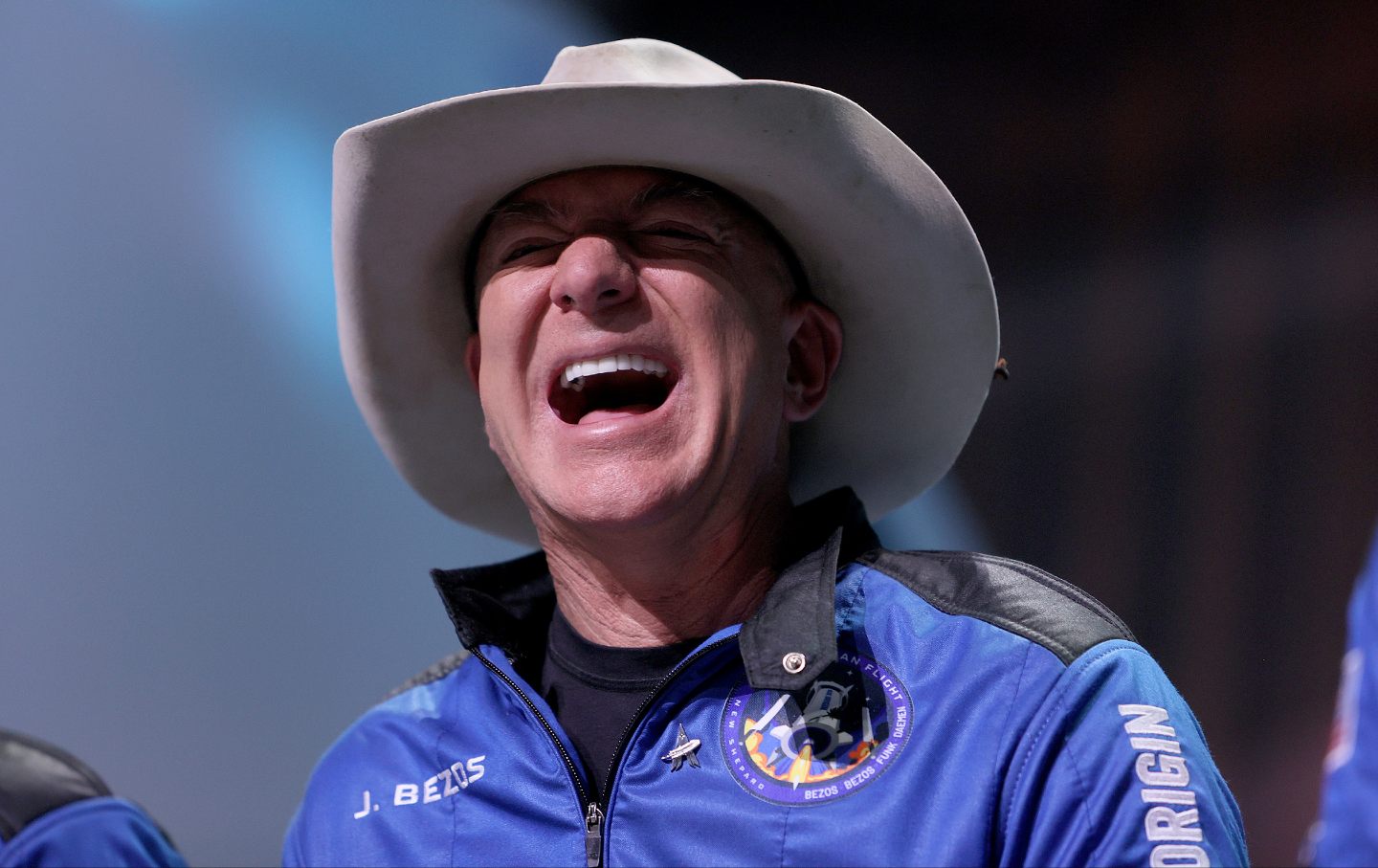
Praying for beneficent tycoons is not the answer. We need the government to step up.
Dean Baker
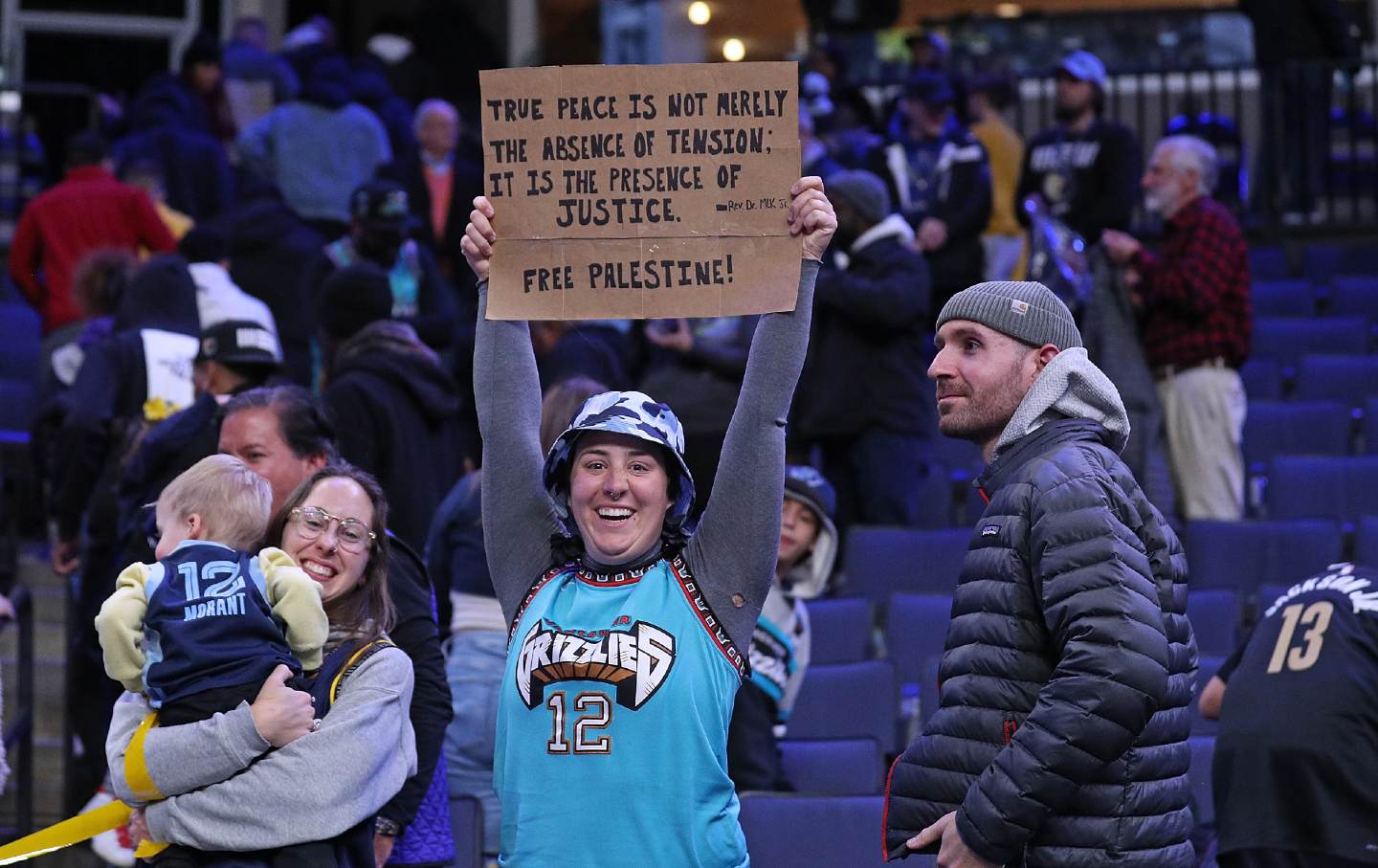
To encourage others, we must protect and celebrate the first wave of signatories to the Athletes for Ceasefire statement.
Dave Zirin

